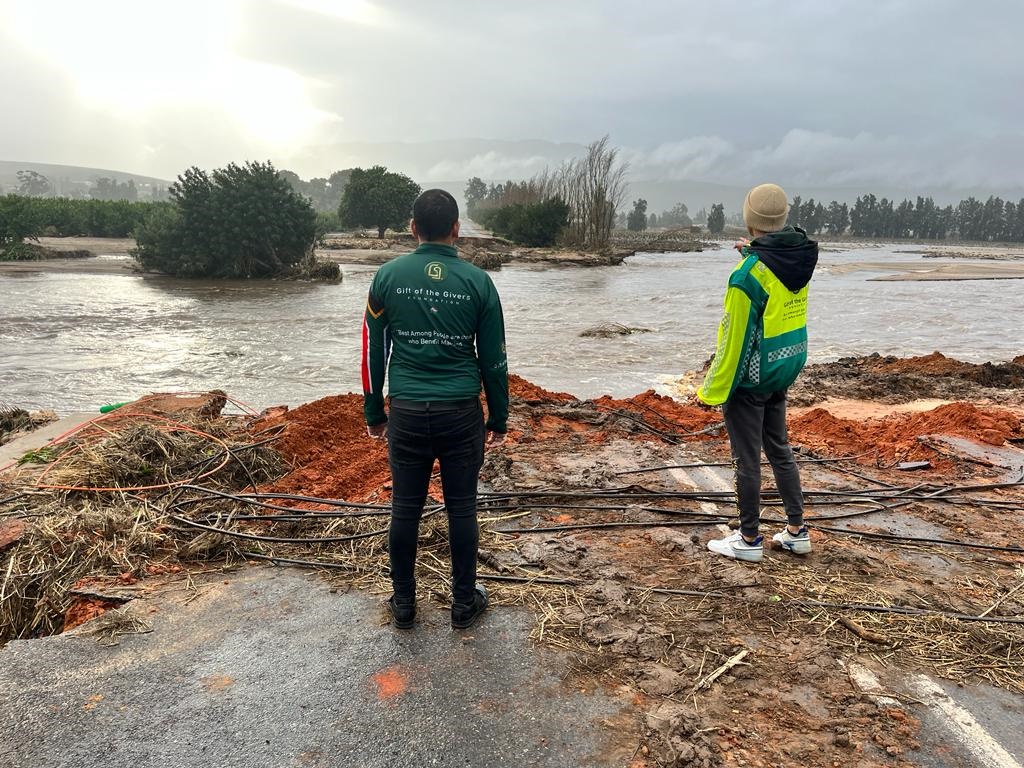
With infrastructure worth billions of rands continuing to be destroyed and businesses losing profits, climate change has become not only a social risk but also one of the biggest financial risks and impacting the national economy, writes Nomhle Ngwenya.
The winter season is one that is characterised by plunging temperatures and snow in some parts of the country.
Data from the South African Weather Services illustrates how the Western Cape receives most of its rainfall in the winter months (June to August) while the rest of the country receives rainfall during summer (December to February).
Despite these variations in rainfall, the past couple of days have shown how even provinces that do not typically receive rainfall in winter have been subjected to extreme weather events that have led to prolonged rainfall, which has caused flooding. This has been observed in the provinces of the Northern Cape, where severe flooding has led to road closures as well as Kwazulu-Natal (KZN), where disruptive rainfall has caused social havoc with homes destroyed and lives lost.
The biggest question is why are there climate anomalies leading to extreme weather events that are changing seasonal patterns. The truth at hand is that climate change is a result of the intense weather conditions we are all currently experiencing and that this will be our new reality.
The norm for SA
A 2022 report by Carbon Brief, highlights how extreme weather events such as heatwaves and disruptive rainfall will become a norm for South Africa as a result of climate change.
As climate change intensifies and extreme weather events are experienced, this further results in climate-related risks.
The Task Force on Climate-Related Financial Disclosures (TCFD) defines climate-related risks according to two categories. Firstly, risks related to the transition towards a low-carbon economy include market and reputational risks, policy and legal risks, among others.
The second risk relates to physical risks which result from climate change and can be classified as acute (floods, cyclones) or chronic (sea-level rise or heat waves).
READ | R10m in relief spent so far as Western Cape mops up after rain, floods - Gift of the Givers
The increasing frequency and intensity of climate-related physical hazards harbour a new set of dynamic and complex risks for governments and companies. An example of this is the April 2022 catastrophic floods that occurred in KZN, which devastated the entire region.
Data from research, illustrates how the KZN floods were a result of climate change-induced patterns with more than 400 people killed, 16 000 homes destroyed, leading to massive displacement of people with billions of rands of damage to infrastructure.
The social and financial implications of climate-related risks have resulted in two National State of Disasters been implemented by government during the period of 2022-2023.
Efforts geared towards post-disaster recovery
An analysis of the Provincial and Local Government Disaster Management Act, 2022 (Act No. 57 of 2022), there is a strong understanding of how South Africa faces increasing levels of disaster risk. It is exposed to a wide range of weather hazards, including drought, cyclones and severe storms that can trigger widespread hardship and devastation. However, the level of disaster preparedness and reactive approach by government has been called into question.
Some of these pertinent questions relate to what is being done on training and public awareness on extreme weather events as well as partnerships with various stakeholders to mitigate against climate risks.
It seems that whenever a climate disaster strikes, all efforts are geared into post-disaster recovery and having to reconstruct and rebuild a cohesive society afterwards. With the country already embattled with the triple crisis of poverty, unemployment and inequality, post-disaster recovery does the complete opposite and instead further exacerbates the deep social and economic challenges of this country.
Left unmanaged, these climate-related physical risks can lead to reduced resilience and significant financial losses. With infrastructure worth billions of rands continuing to be destroyed and businesses losing profits, climate change has become not only a social risk but also one of the biggest financial risks and impacting the national economy.
Economic and social damage beyond our control
As much as factors such as the disruption caused by Transnet's rail network supply chain as well as load shedding, I for one, truly believe that climate-related risks will start having a bigger impact on the national GDP.
READ | Every 1°C of warming means 15% more extreme rain, researchers say
The lives, health and well-being of our society and economy are at high risk because of climate-related disasters. The floods are a stark reminder of how economic and social damage is beyond our control. However, what is in our control is to ensure an effective response across all spheres of government to the extreme weather events that have occurred in several parts of the country.
In addition, the coordination and management of all spheres of government, municipalities and private sector to ensure the proactive mobilisation of resources and technical expertise to monitor extreme-climate weather events. The sooner this is realised and implemented, the better the country will manage climate-related risks and prevent them from becoming disastrous.
- Dr Nomhle Ngwenya is an independent climate finance researcher and specialist.
Disclaimer: News24 encourages freedom of speech and the expression of diverse views. The views of columnists published on News24 are therefore their own and do not necessarily represent the views of News24.




 Publications
Publications
 Partners
Partners























